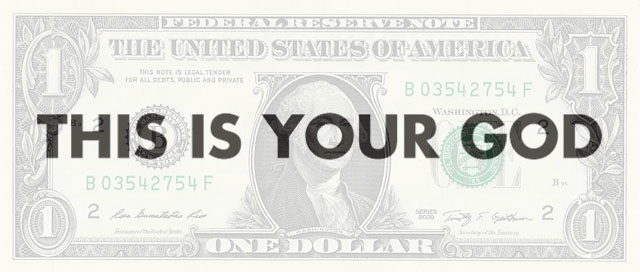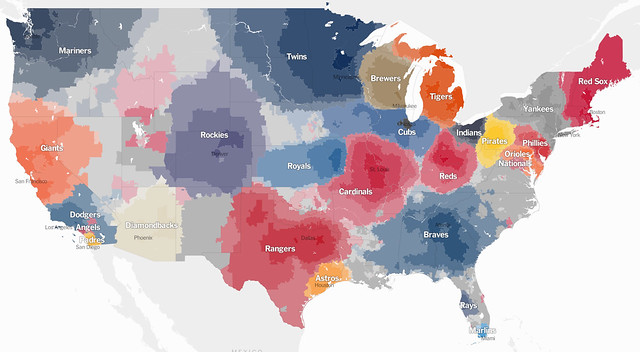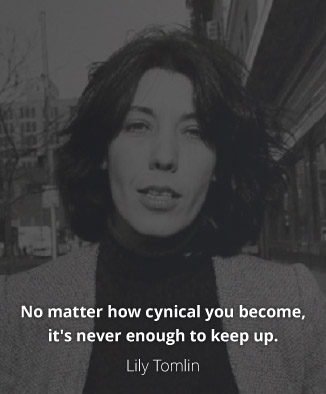"If certain acts of violation of treaties are crimes, they are crimes whether the United States does them or whether Germany does them. And we are not prepared to lay down the rule of criminal conduct against others which we would not be willing to have invoked against us. We must never forget that the record on which we judge these defendants is the record on which history will judge us tomorrow."
~ Justice Robert H. Jackson, Chief Counsel for the Prosecution of War Crimes at the Nuremberg Tribunal
"A butterfly is more free than a bee; but you honor the bee more just because it is subject to certain laws which fit it for orderly function in bee society. And throughout the world, of the two abstract things, liberty and restraint, restraint is always the more honorable." ~ John Ruskin The Two Paths 1858
Wednesday, December 17, 2014
Violation
Monday, December 8, 2014
Wednesday, December 3, 2014
Contribute
O ME! O life! of the questions of these recurring,
Of the endless trains of the faithless, of cities fill’d with the foolish,
Of myself forever reproaching myself, (for who more foolish than I, and who more faithless?)
Of eyes that vainly crave the light, of the objects mean, of the struggle ever renew’d,
Of the poor results of all, of the plodding and sordid crowds I see around me,
Of the empty and useless years of the rest, with the rest me intertwined,
The question, O me! so sad, recurring — What good amid these, O me, O life?
Answer.
That you are here — that life exists and identity,
That the powerful play goes on, and you may contribute a verse.
"O Me! O Life!"
BY WALT WHITMAN
Source: Leaves of Grass (1892)
Monday, December 1, 2014
The meek shall inherit nothing
...Work the wall
Work the floor
Work the pipe
In serious pain...
Some take the bible for what it's worth
When it says that the meek shall inherit the Earth
Well, I heard that some sheik has bought New Jersey last week
'N you suckers ain't gettin' nothin'
Is Hare Rama really wrong
If you wander around with a napkin on
With a bell on a stick an' your hair is all gone
The geek shall inherit nothin'
You say yer life's a bum deal
'N yer up against the wall
Well, people, you ain't even got no kinda
Deal at all
Cause what they do
In Washington
They just takes care
Of Number One
An' Number One ain't you
You ain't even Number Two
Those Jesus Freaks, well, they're friendly but
The shit they believe has got their minds all shut
An' they don't even care when the church takes a cut
Ain't it bleak when you got so much nothin'
So whaddya do? Hey!
Eat that pork, eat that ham
Laugh till ya choke on Billy Graham
Moses, Aaron 'n Abraham:
They're all a waste of time
'N it's your ass that's on the line
It's your ass that's on the line
Do what you wanna, do what you will
Just don't mess up your neighbor's thrill
'N when you pay the bill, kindly leave a little tip
And help the next poor sucker on his one way trip.
Some take the bible...
Aw gimme a half a dozen for the hotel room!
"The Meek Shall Inherit Nothing" by Frank Zappa, You Are What You Is
Work the floor
Work the pipe
In serious pain...
Some take the bible for what it's worth
When it says that the meek shall inherit the Earth
Well, I heard that some sheik has bought New Jersey last week
'N you suckers ain't gettin' nothin'
Is Hare Rama really wrong
If you wander around with a napkin on
With a bell on a stick an' your hair is all gone
The geek shall inherit nothin'
You say yer life's a bum deal
'N yer up against the wall
Well, people, you ain't even got no kinda
Deal at all
Cause what they do
In Washington
They just takes care
Of Number One
An' Number One ain't you
You ain't even Number Two
Those Jesus Freaks, well, they're friendly but
The shit they believe has got their minds all shut
An' they don't even care when the church takes a cut
Ain't it bleak when you got so much nothin'
So whaddya do? Hey!
Eat that pork, eat that ham
Laugh till ya choke on Billy Graham
Moses, Aaron 'n Abraham:
They're all a waste of time
'N it's your ass that's on the line
It's your ass that's on the line
Do what you wanna, do what you will
Just don't mess up your neighbor's thrill
'N when you pay the bill, kindly leave a little tip
And help the next poor sucker on his one way trip.
Some take the bible...
Aw gimme a half a dozen for the hotel room!
"The Meek Shall Inherit Nothing" by Frank Zappa, You Are What You Is
Tuesday, November 25, 2014
Party down
"The Party seeks power entirely for its own sake. We are not interested in the good of others; we are interested solely in power. Not wealth or luxury or long life or happiness: only power, pure power. What pure power means you will understand presently. We are different from all the oligarchies of the past, in that we know what we are doing. All the others, even those who resembled ourselves, were cowards and hypocrites. The German Nazis and the Russian Communists came very close to us in their methods, but they never had the courage to recognize their own motives. They pretended, perhaps they even believed, that they had seized power unwillingly and for a limited time, and that just round the corner there lay a paradise where human beings would be free and equal. We are not like that. We know that no one ever seizes power with the intention of relinquishing it. Power is not a means, it is an end. One does not establish a dictatorship in order to safeguard a revolution; one makes the revolution in order to establish the dictatorship. The object of persecution is persecution. The object of torture is torture. The object of power is power. Now do you begin to understand me?"
~ George Orwell, 1984

Thursday, November 20, 2014
Commodified

"I see parallels in the mistreatment of farm animals, and the commodification of ordinary people into consumers for corporations to milk-dry. Farm animals are supposedly protected by the Humane Slaughter Act of 1958. People are supposedly protected by the constitution and consumer laws. But somehow those laws don’t offer much protection.
Our government, along with corporations, banks, mortgage companies, and health insurance companies, often treat us like some hapless animal being led off to slaughter. In 2008 the majority of voters chose Barack Obama as a hope for change. But Obama turned out to be a Trojan Horse for corporate interests.
Factory farm videos also remind me of the mortality that we all face. While people supposedly have more intellect than farm animals, for some reason many people just march quietly along, resigned to their metaphoric slaughter by The Powers That Be."
~ Neil Gillespie, "Down on the Factory Farm" April 25, 2012
Tuesday, November 18, 2014
Profit and power
"You can tell what’s informing a society by what the tallest building is. When you approach a medieval town, the cathedral is the tallest thing in the place. When you approach an eighteenth-century town, it is the political palace ... And when you approach a modern city, the tallest places are the office buildings, the centers of economic life."
~ Joseph Campbell

"Now the two great aims of industrialism — replacement of people by technology and concentration of wealth in the hands of a small plutocracy — seem close to fulfillment. At the same time the failures of industrialism have become too great and too dangerous to deny.
Even the term 'economy' has lost its original meaning, which had to do with household management and husbandry. Most economists now never ask, in their professional oblivion, why we are willing to do permanent ecological and cultural damage 'to strengthen the economy.'
Corporate industrialism has failed to sustain the health and stability of human society. Among its characteristic signs are destroyed communities, neighborhoods, families, small businesses and small farms. It has failed just as conspicuously and more dangerously to conserve the wealth and health of nature."
~ Wendell Berry, 2012 Jefferson Lecture, Washington, D.C.
Monday, November 17, 2014
No farms, no food
From today's entry on the New York Times photography blog titled "Buying the Farm, Building a Subdivision"
 The article's blithe tone seemed to openly invite cynical comments. Only four responses in, commentator "steve from virginia" brought the discourse straight into Hunger Games territory:
The article's blithe tone seemed to openly invite cynical comments. Only four responses in, commentator "steve from virginia" brought the discourse straight into Hunger Games territory:
Scott Strazzante thought he had a quick newspaper assignment photographing a farm in suburban Chicago. Instead, he spent the next 20 years documenting life there and on the suburban subdivision that replaced it.
His new book, Common Ground, pairs an elderly couple’s everyday routines on the farm with strikingly similar images of a young family in the starter-home development that replaced it. His project kind of happened, with plot twists and serendipity, much like life itself.
 The article's blithe tone seemed to openly invite cynical comments. Only four responses in, commentator "steve from virginia" brought the discourse straight into Hunger Games territory:
The article's blithe tone seemed to openly invite cynical comments. Only four responses in, commentator "steve from virginia" brought the discourse straight into Hunger Games territory: If Strazzante lives long enough he can photograph the rotting tract houses and the squatters' vegetable gardens, the goats and chickens, the rusted cars and burning piles of otherwise indestructible plastic ... he can also film the revolutionary fighters and the aircraft flying low overhead to bomb them.
Thursday, November 13, 2014
Resist! Farm! Garden! Organize!
But I got a message from the hummingbird
He gave me a warning in disguise
He told me they're marching on Monsanto
But the same monolithic structures rise

He gave me a warning in disguise
He told me they're marching on Monsanto
But the same monolithic structures rise

Tuesday, November 11, 2014
Upside down
Sheldon Wolin via Wikipedia
In inverted totalitarianism, every natural resource and every living being is commodified and exploited to collapse as the citizenry are lulled and manipulated into surrendering their liberties and their participation in government through excess consumerism and sensationalism.
...
Whereas in [a fascist regime] the state dominate[s] economic actors, in inverted totalitarianism, corporations through political contributions and lobbying, dominate the United States, with the government acting as the servant of large corporations. This is considered "normal" rather than corrupt.
In inverted totalitarianism, every natural resource and every living being is commodified and exploited to collapse as the citizenry are lulled and manipulated into surrendering their liberties and their participation in government through excess consumerism and sensationalism.
...
Whereas in [a fascist regime] the state dominate[s] economic actors, in inverted totalitarianism, corporations through political contributions and lobbying, dominate the United States, with the government acting as the servant of large corporations. This is considered "normal" rather than corrupt.
Tuesday, November 4, 2014
Don't vote
"Democracy is dead in the United States. Yet there is still nothing to replace real democracy. Drop the chains, then, that bind our brains. Drive the money-changers from the seats of the Cabinet and the halls of Congress. Call back some faint spirit of Jefferson and Lincoln, and when again we can hold a fair election on real issues, let's vote, and not till then. Is this impossible? Then democracy in America is impossible."
~ W.E.B. Dubois, "Why I Won't Vote," 20 October 1956
Monday, October 20, 2014
Reflections on the guillotine
"Punishment, penalizing rather than preventing, is a form of revenge: society's semi-arithmetical answer to violation of its primordial law. This answer is as old as man himself, and usually goes by the name of retaliation. He who hurts me must be hurt; who blinds me in one eye must himself lose an eye; who takes a life must die.
It is a feeling, and a particularly violent one, which is involved here, not a principle. Retaliation belongs to the order of nature, of instinct, not to the order of law. The law by definition cannot abide by the same rules as nature. If murder is part of man's nature, the law is not made to imitate or reproduce such nature. We have all known the impulse to retaliate, often to our shame, and we know its power: the power of the primeval forests.
In this regard, we live — as Frenchmen who grow justifiably indignant at seeing the oil king of Saudi Arabia preach international democracy while entrusting his butcher with the task of cutting off a thief's hand — in a kind of middle ages ourselves, without even the consolations of faith.
Yet if we still define our justice according to the calculations of a crude arithmetic, can we at least affirm that this arithmetic is correct, and that even such elementary justice, limited as it is to a form of legal revenge, is safeguarded by the death penalty? The answer must again be: No."
~ Albert Camus, Reflections on the Guillotine
Friday, October 17, 2014
Damage
by Wendell Berry
I
I have a steep wooded hillside that I wanted to be able to pasture occasionally, but it had no permanent water supply.
About halfway to the top of the slope there is a narrow bench, on which I thought I could make a small pond. I hired a man with a bulldozer to dig one. He cleared away the trees and then formed the pond, cutting into the hill on the upper side, piling the loosened dirt in a curving earthwork on the lower.
The pond appeared to be a success. Before the bulldozer quit work, water had already begun to seep in. Soon there was enough to support a few head of stock. To heal the exposed ground, I fertilized it and sowed it with grass and clover.
We had an extremely wet fall and winter, with the usual freezing and thawing. The ground grew heavy with water, and soft. The earthwork slumped; a large slice of the woods floor on the upper side slipped down into the pond.
The trouble was the familiar one: too much power, too little knowledge. The fault was mine.
I was careful to get expert advice. But this only exemplifies what I already knew. No expert knows everything about every place, not even anything about any place. If one’s knowledge of one’s whereabouts is insufficient, if one’s judgment is unsound, then expert advice is of little use.
II
In general, I have used my farm carefully. It could be said, I think, that I have improved it more than I have damaged it.
My aim has been to go against its history and to repair the damage of other people. But now a part of its damage is my own.
The pond was a modest piece of work, and so the damage is not extensive. In the course of time and nature it will heal.
And yet there is damage - to my place, and to me. I have carried out, before my own eyes and against my intention, a part of the modern tragedy: I have made a lasting flaw in the face of the earth, for no lasting good.
Until that wound in the hillside, my place, is healed, there will be something impaired in my mind. My peace is damaged. I will not be able to forget it.
III
It used to be that I could think of art as a refuge from such troubles. From the imperfections of life, one could take refuge in the perfections of art. One could read a good poem - or better, write one.
Art was what was truly permanent, therefore what truly mattered. The rest was “but a spume that plays/Upon a ghostly paradigm of things.”
I am no longer able to think that way. That is because I now live in my subject. My subject is my place in the world, and I live in my place.
There is a sense in which I no longer “go to work.” If I live in my place, which is my subject, then I am “at” my work even when I am not working. It is “my” work because I cannot escape it.
If I live in my subject, then writing about it cannot “free” me of it or “get it out of my system.” When I am finished writing, I can only return to what I have been writing about.
While I have been writing about it, time will have changed it. Over longer stretches of time, I will change it. Ultimately, it will be changed by what I write, inasmuch as I, who change my subject, am changed by what I write about.
If I have damaged my subject, then I have damaged my art. What aspired to be whole has met damage face to face, and has come away wounded. And so it loses interest in both in the anesthetic and in the purely esthetic.
It accepts the clarification of pain, and concerns itself with healing. It cultivates the scar that is the course of time and nature over damage: the landmark and mindmark that is the notation of a limit.
To lose the scar of knowledge is to renew the wound.
An art that heals and protects its subject is a geography of scars.
IV
“You never know what is enough unless you know what is more than enough.”
I used to think of Blake’s sentence as a justification of youthful excess. By now I know that it describes the peculiar condemnation of our species. When the road of excess has reached the palace of wisdom it is a healed wound, a long scar.
Culture preserves the map and the records of past journeys so that no generation will permanently destroy the route.
The more local and settled the culture, the better it stays put, the less the damage. It is the foreigner whose road of excess leads to a desert.
Blake gives the just proportion or control in another proverb: “No bird soars too high, if he soars with his own wings.” Only when our acts are empowered with more than bodily strength do we need to think of limits.
It was no thought or word that called culture into being, but a tool or a weapon. After the stone axe we needed song and story to remember innocence, to record effect - and so to describe the limits, to say what can be done without damage.
The use only of our bodies for work or love or pleasure, or even for combat, sets us free again in the wilderness, and we exult.
But a man with a machine and inadequate culture - such as I was when I made my pond - is a pestilence. He shakes more than he can hold.
Monday, September 29, 2014
"Perhaps the whole root of our trouble, the human trouble, is that we will sacrifice all the beauty of our lives, will imprison ourselves in totems, taboos, crosses, blood sacrifices, steeples, mosques, races, armies, flags, nations, in order to deny the fact of death, the only fact we have. It seems to me that one ought to rejoice in the fact of death ― ought to decide, indeed, to earn one's death by confronting with passion the conundrum of life."
~ James Baldwin
Friday, September 5, 2014
Thursday, August 14, 2014
Bears repeating
"We Americans are not usually thought to be a submissive people, but of course we are.
Why else would we allow our country to be destroyed? Why else would we be rewarding its destroyers? Why else would we all — by proxies we have given to greedy corporations and corrupt politicians — be participating in its destruction?
Most of us are still too sane to piss in our own cistern, but we allow others to do so and we reward them for it. We reward them so well, in fact, that those who piss in our cistern are wealthier than the rest of us.
How do we submit?
By not being radical enough. Or by not being thorough enough, which is the same thing."
~ Wendell Berry
Tuesday, August 12, 2014
Thursday, August 7, 2014
Upheaval
"And the great owners, who must lose their land in an upheaval, the great owners with access to history, with eyes to read history and to know the great fact: when property accumulates in too few hands it is taken away. And that companion fact: when a majority of the people are hungry and cold they will take by force what they need. And the little screaming fact that sounds through all history: repression works only to strengthen and knit the repressed.
The great owners ignored the three cries of history. The land fell into fewer hands, the number of the dispossessed increased, and every effort of the great owners was directed at repression. The money was spent for arms, for gas to protect the great holdings, and spies were sent to catch the murmuring of revolt so that it might be stamped out. The changing economy was ignored, plans for the change ignored; and only means to destroy revolt were considered, while the causes of revolt went on."
~ John Steinbeck, The Grapes of Wrath
Friday, June 20, 2014
Wednesday, June 18, 2014
Friday, May 16, 2014
Wednesday, May 14, 2014
Beer and nukes
"You can't be a real country unless you have a beer and an airline - it helps if you have some kind of football team, or some nuclear weapons, but in the very least you need a beer."
~ Frank Zappa
Tuesday, April 29, 2014
War and baseball

"Sometimes a strikeout means that the slugger’s girlfriend just ran off with the UPS driver. Sometimes a muffed ground ball means that the shortstop’s baby daughter has a pain in her head that won’t go away. And handicapping is for amateur golfers, not ballplayers. Pitchers don’t ease off on the cleanup hitter because of the lumps just discovered in his wife’s breast. Baseball is not life. It is a fiction, a metaphor. And a ballplayer is a man who agrees to uphold that metaphor as though lives were at stake.
Perhaps they are. I cherish a theory I once heard propounded by G.Q. Durham that professional baseball is inherently antiwar. The most overlooked cause of war, his theory runs, is that it’s so damned interesting. It takes hard effort, skill, love and a little luck to make times of peace consistently interesting. About all it takes to make war interesting is a life. The appeal of trying to kill others without being killed yourself, according to Gale, is that it brings suspense, terror, honor, disgrace, rage, tragedy, treachery and occasionally even heroism within range of guys who, in times of peace, might lead lives of unmitigated blandness. But baseball, he says, is one activity that is able to generate suspense and excitement on a national scale, just like war. And baseball can only be played in peace [sic]. Hence G.Q.’s thesis that pro ballplayers — little as some of them may want to hear it — are basically just a bunch of unusually well-coordinated guys working hard and artfully to prevent wars, by making peace more interesting."
~ David James Duncan
Wednesday, February 19, 2014
Subscribe to:
Posts (Atom)





